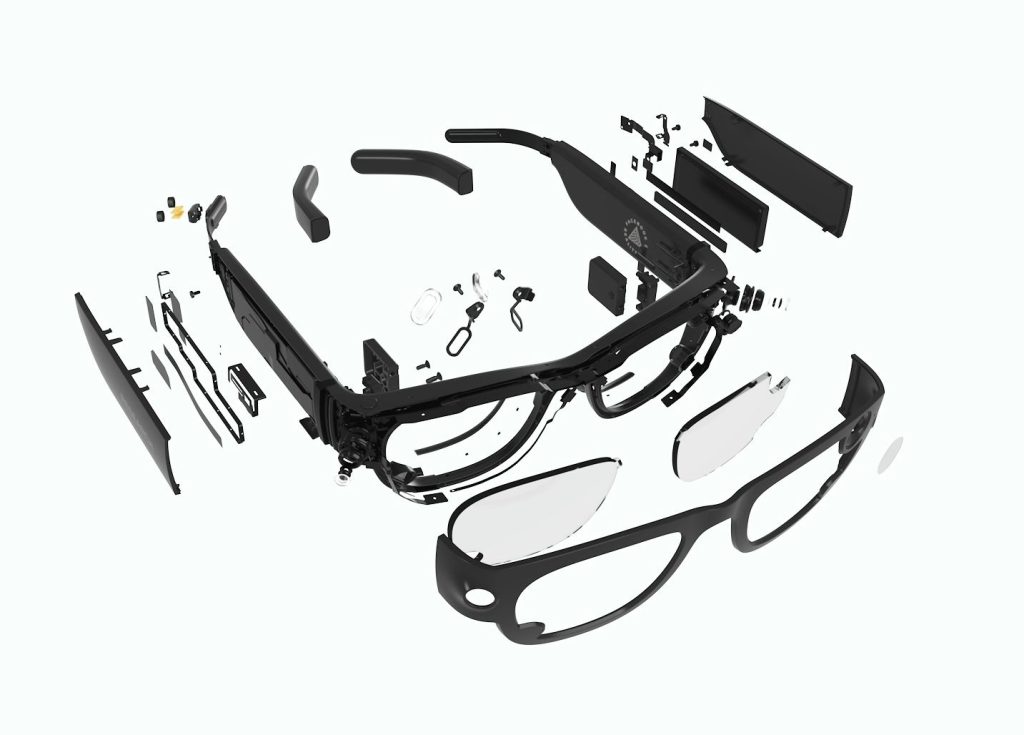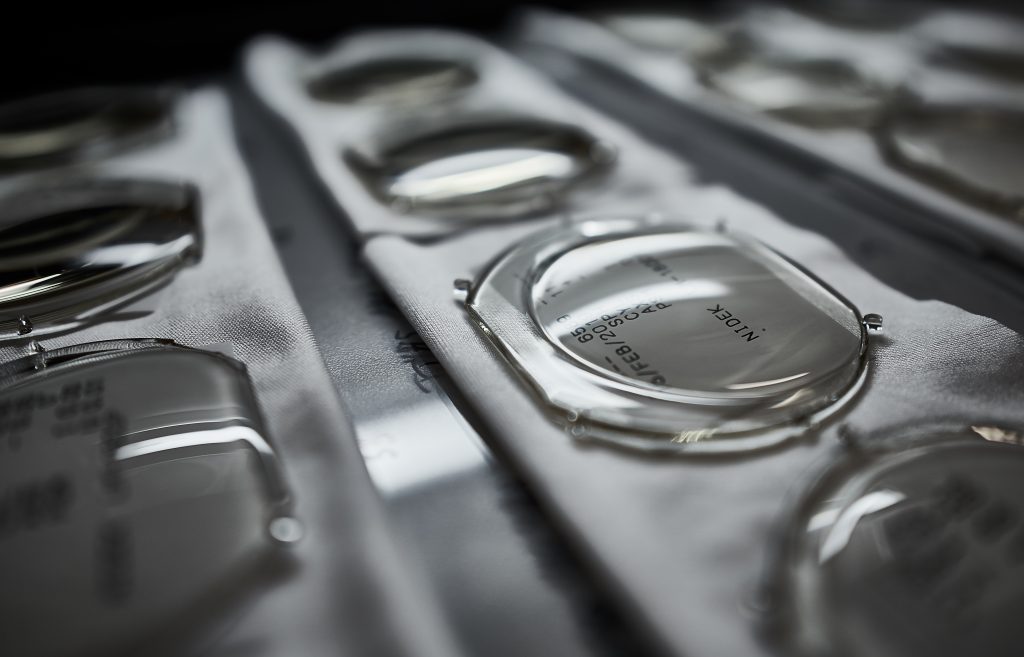Facebook parent firm Meta has acquired prescription lens 3D printing specialist Luxexcel.
Using its proprietary VisionPlatform technology, Luxexcel is able to embed smart devices like waveguides, holographic films, and LCD screens directly into the lenses of glasses. Having previously worked with the firm on its Aria Project, it’s likely Meta will now deploy 3D printing in the development of further augmented reality (AR) glasses, as well as technologies that make its metaverse more immersive.
Though little has been made public about the terms of the deal, Meta has issued a statement saying: “We are delighted that the Luxexcel team has joined Meta. This extends the partnership between the two companies.”
Luxexcel’s VisionPlatform technology
Based in Antwerp, Belgium, Luxexcel has worked since 2009 to develop a more efficient way of mass-producing prescription lenses. These lenses tend to be manufactured via a process of around 30 steps, which necessitates the keeping of large inventories and yields high wastage, but Luxexcel’s technology whittles this right down.
Instead of relying on grinding and polishing, the firm’s VisionPlatform sees such lenses built up layer-by-layer in a material jetting process. Through the precise deposition of billions of acrylic resin droplets, the technology is said to be capable of realizing custom prescription lens designs with smooth surfaces that don’t require any post-processing whatsoever.
Another benefit of the process is that it allows for the integration of smart technologies, in the form of waveguides or LCDs of films, into the lenses themselves. In theory, this could be advantageous for prescription glasses wearers who would be able to enjoy AR experiences through resulting lenses, without having to squeeze existing eyewear underneath.
To bring this idea from concept to reality, Luxexcel has previously worked with Lumus to develop prototype AR-ready 3D printed prescription lenses. In 2021, the firm also partnered with another waveguide manufacturer, WaveOptics, to hone a set of smart glasses with AR functionality, designed to offer vision correction and AR capabilities in a compact form factor.

Meta’s long-held AR ambitions
Through its Meta Reality Labs division, Meta continues to work relentlessly to identify new ways of harnessing AI, neural control interfaces, haptic feedback, and full-body tracking, to deliver breakthrough AR experiences. Prior to its renaming in 2021, the Facebook Reality Lab team unveiled 3D printed VR gaming gloves. More recently, these engineers have also come up with 3D printed AR tags for game controllers.
That said, having bought the technology behind its Meta Quest gaming headset through its acquisition of Oculus in 2014, the company is no stranger to inorganically growing its business. As first reported by De Tijd, Meta has now continued on this path, by acquiring Luxexcel. While the exact terms of the deal haven’t been made public, it’s said that it will strengthen existing ties between the firms.
In 2020, the companies worked together as part of Project Aria. This saw the development of an experimental set of AR glasses, capable of capturing real-world data from a first-person perspective. At the time, Luxexcel’s exact role in the initiative wasn’t disclosed, and Meta later emphasized that it still had “a long way to go” before its glasses would hit the market, but it has since made further progress.
Meta partnered with Ray-Ban to launch Ray-Ban Stories last year, a pair of smart glasses fitted with cameras, speakers, and microphones. Following its deal to buy Luxexcel, it’s now likely the firm will utilize its acquired technologies to boost the R&D efforts of its Reality Labs team, as well as to further plans outlined by its head Andrew Bosworth, to blend the physical and virtual worlds in a ‘Meta Reality.’
“Mixed reality is a key part of the journey toward full augmented reality devices, and eye and face tracking is an essential piece of the technology stack needed for AR and VR devices to reach their full potential,” Bosworth wrote last year. “Over time it’s clear that mixed reality will help VR devices become increasingly compelling alternatives to laptops and desktop computers, placing virtual screens and interfaces on your desk or in your hands.”

Luxexcel has become an early leader in the emerging glasses lens 3D printing space, but the field is far more hotly-contested when it comes to additive manufactured frames. In the past, Materialise has invested in Ditto, the developer of an online eyewear platform that allows customers to design and ‘try on’ bespoke 3D printed frames.
More recently, an EOS 3D printed eyewear study found that one of its customers, YOU MAWO, was able to reduce its carbon footprint by 58% via the adoption of its technologies. Through a full life cycle analysis (LCA), which took into account each stage of the production process from material sourcing to packaging and shipping, the firm uncovered significant 3D printing sustainability benefits.
To stay up to date with the latest 3D printing news, don’t forget to subscribe to the 3D Printing Industry newsletter or follow us on Twitter or liking our page on Facebook.
While you’re here, why not subscribe to our Youtube channel? featuring discussion, debriefs, video shorts and webinar replays.
Are you looking for a job in the additive manufacturing industry? Visit 3D Printing Jobs for a selection of roles in the industry.
Featured image shows a render of Meta’s prototype Aria smartglasses. Image via Meta.


